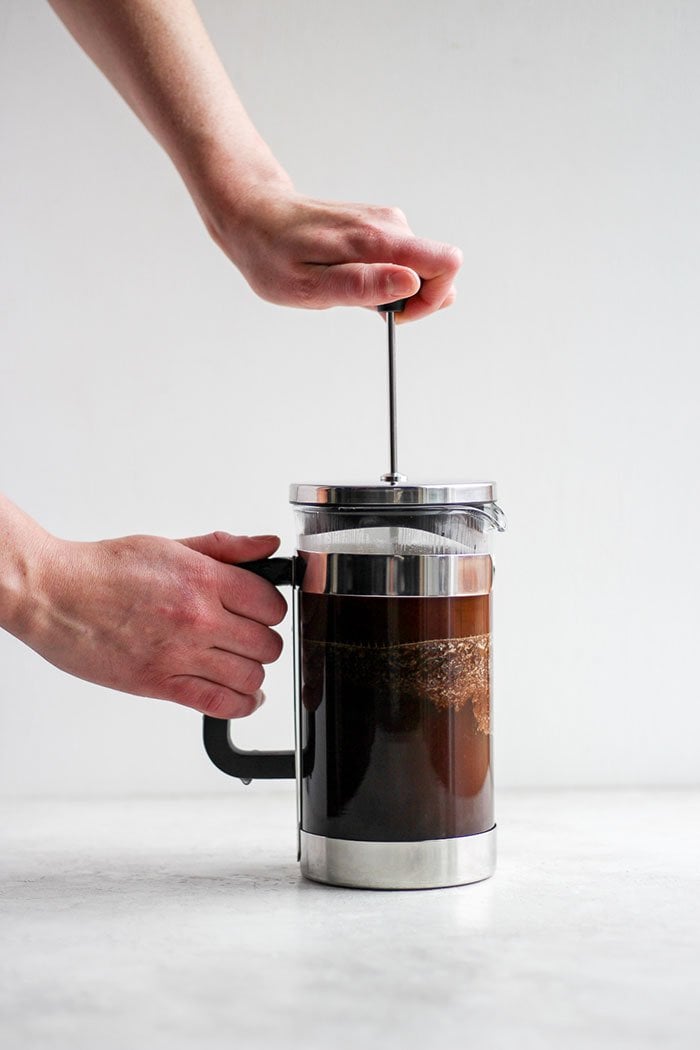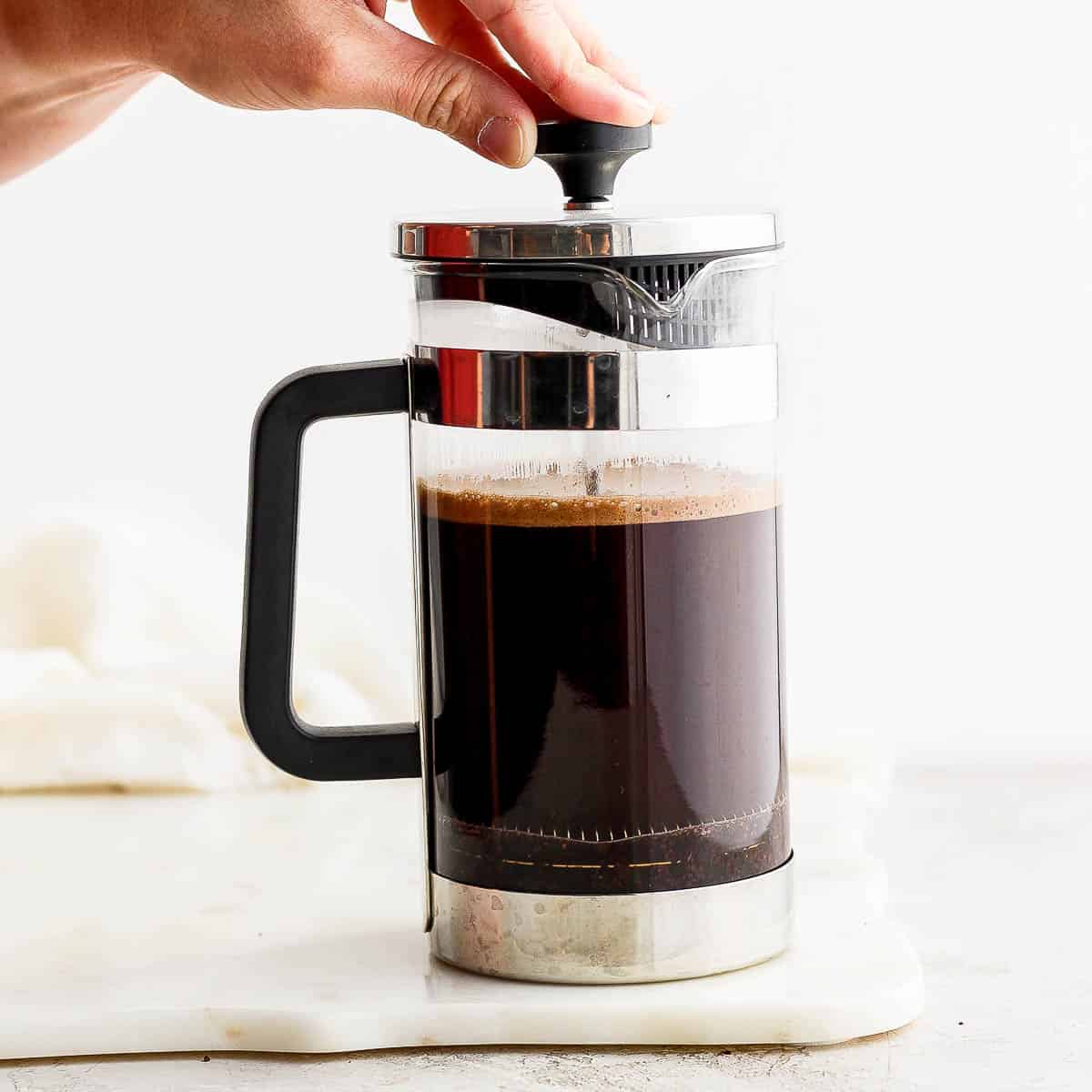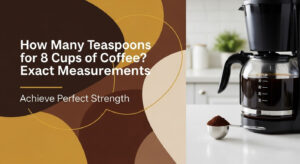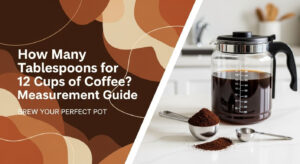As an Amazon Associate CoffeeXplore.com earns from qualifying purchases.
Can You Use a French Press Without Boiling Water?: Effects on Coffee Quality, Alternatives, and Tips
Can you use a French press without boiling water? If you’ve ever wondered whether skipping the boil affects your coffee’s taste and quality, you’re not alone. Using a French press without boiling water is possible, but it significantly impacts the flavor and aroma of your coffee.
Explore with us as we delve into the science behind coffee extraction, the effects of using cooler water, and practical alternatives to achieve the best brew how you can fine-tune your brewing technique to suit your taste preferences and ensure that every cup is consistently delicious. Whether you’re troubleshooting a brewing issue or simply experimenting with new methods, this guide will help you navigate the nuances of French press coffee like a pro.
Key Facts:
– Water temperature significantly affects coffee extraction and flavor.
– The ideal range for French press coffee is 195°F to 205°F (90°C to 96°C).
– Using cooler water results in under-extraction and potentially weak coffee.
– Alternative heating methods like microwaving can be used if boiling isn’t possible.
– Adjusting brewing time and coffee-to-water ratio can help compensate for lower water temperatures.
The Impact of Water Temperature on French Press Coffee

The impact of water temperature on French press coffee is profound and far-reaching. When brewing coffee using a French press, water temperature plays a crucial role in extracting the flavors, oils, and aromas from the coffee grounds. The ideal temperature range for between 195°F and 205°F (90°C to 96°C), which is just below boiling point. This temperature range is critical because it allows for optimal extraction of the coffee’s complex flavor compounds without over-extracting or burning the grounds.
Let’s break down the effects of water temperature on your French press brew:
| Water Temperature | Effect on Coffee |
|---|---|
| Too Hot (>205°F) | Over-extraction, bitterness |
| Ideal (195°F-205°F) | Balanced extraction, full flavor |
| Too (<195°F) | Under-extraction, weak flavor |
Why is the right temperature so important? When water is at the ideal temperature, it efficiently extracts the desirable compounds from the coffee grounds, including caffeine, oils, and various flavor molecules. This results in a well-balanced cup with the full spectrum of flavors that your coffee beans have to offer.
What Happens When You Don’t Boil the you don’t boil the water for your French press, you’re essentially brewing coffee with water that’s below the optimal temperature range. This can lead to several issues:
- Under-extraction: Cooler water doesn’t extract coffee compounds as efficiently, resulting in a weak and underwhelming cup.
- Imbalanced flavor: Some flavor compounds extract at lower temperatures than others, potentially leading to an unbalanced taste profile.
- Reduced aroma: The volatile compounds responsible for coffee’s enticing aroma may not be fully released with cooler water.
- Lower caffeine content: While caffeine is relatively soluble even in cooler water, you may not get the full caffeine kick you’re expecting.
A study on Reddit shared an where a user forgot to boil the press. They reported that the resulting coffee was still drinkable but noticeably cold and lacking in flavor depth.
Can You Achieve an Acceptable Brew with Cooler Water?
While using boiling water is ideal, it’s not always to achieve an acceptable brew. Some coffee enthusiasts even prefer using slightly cooler water to highlight different flavor notes in their coffee. Here are some tips to make the most of brewing with cooler water:
- Extend the brewing time: If your water isn’t hot enough, let the coffee steep for longer to allow more time for extraction.
- Use a finer grind: Finer coffee grounds have more surface area, which can help compensate for lower water temperatures.
- Adjust the coffee-to-water ratio: Using slightly more coffee can help boost the flavor when brewing with cooler water.
- Preheat your French press: This helps maintain the water temperature throughout the brewing process.
Remember, while these adjustments can help, they won’t fully replicate the results you’d get with properly heated water. The key is to experiment and find what works best for your taste preferences.
The Science Behind Coffee Extraction
The science behind coffee extraction is a fascinating interplay of chemistry and physics that directly impacts the flavor, aroma, and overall quality of your brew. When you use a French press, you’re engaging in a process called immersion brewing, where coffee grounds are steeped in water for a period of time. The extraction process is where water acts as a solvent, pulling out various compounds from the coffee grounds.
How Does Temperature Impact Flavor Extraction?
Temperature plays a crucial role in the extraction process. Here’s why:
- Solubility: As water temperature increases, its ability to dissolve compounds from the coffee grounds also increases. This means that hotter water can extract more flavors and oils from the coffee.
- Extraction Rate: Higher temperatures speed up the extraction process. This is why cold brew coffee, which uses room temperature or cold water, requires much longer steeping times (usually 12-24 hours) compared to hot brewing methods.
- Selective Extraction: Different compounds in coffee extract at different rates and temperatures
- Acids and caffeine extract quickly, even at lower temperatures
- Sugars and other flavor compounds require higher temperatures to extract fully
- Bitter compounds typically extract last, which is why over-extraction (often due to too-hot water or too-long steeping) can result in bitter coffee
When you use water that’s not hot enough, you risk under-extracting your coffee. This means you’re not getting the full range of flavors and compounds that your coffee beans have to offer.
“The ideal water temperature for French Press coffee is around 195°F; this is just below boiling. Heat the water on a stovetop bowl or electric kettle to boiling, then let it sit for 30 seconds to a minute before pouring over your coffee grounds.” – Royal Cup Coffee
The Ideal Temperature Range for French Press Coffee
For French press coffee, the ideal temperature range is between 195°F and 205°F (90°C to This range is just below boiling and is optimal for several reasons:
- Balanced Extraction: This temperature range allows for efficient extraction of desirable flavor compounds without over-extracting bitter elements.
- Preserves Volatile Compounds: Water that’s too hot can cause volatile aromatic compounds to evaporate too quickly, resulting in a loss of complex flavors and aromas.
-
Prevents Burning: Coffee grounds can be “burned” by water that’s too hot, leading to bitter, unpleasant flavors.
To achieve this ideal temperature:
- Bring your water to a boil (212°F or 100°C at sea level)
- Remove from heat and let it sit for about 30 seconds to a minute
- Pour over your coffee grounds in the French press
Using a thermometer can help ensure you’re hitting the right temperature range consistently.
Consequences of Under-Extracted Coffee
When coffee is under-extracted due to water that’s not hot enough, you may experience:
- Weak Flavor: The coffee may taste watery or lack depth and complexity.
- Increased Acidity: Since acids extract more easily than other compounds, under-extracted coffee can taste overly sour or tart.
- Lack of Body: The fullbodied mouthfeel characteristic of French press coffee may be missing.
- Reduced Aroma: The coffee may lack the rich, enticing aroma you’d expect.
Understanding these consequences can help you troubleshoot issues with your French press coffee and make the necessary adjustments to achieve the perfect cup.
Effects of Not Boiling Water on Coffee Quality

The effects of not boiling water on coffee quality are significant and can dramatically alter your French press brewing experience. When you use water that hasn’t reached the optimal temperature range of 195°F to 205°F (90°C to 96°C), you’re essentially changing the fundamental chemistry of the brewing process. Let’s dive into how this affects your coffee’s flavor profile and overall quality.
How Flavor and Aroma Are Impacted
Flavor and aroma are perhaps the most noticeable aspects affected when you don’t use boiling (or near-boiling) water in your French press. Here’s a breakdown of the impact:
- Reduced Extraction: Cooler water doesn’t extract coffee compounds as efficiently. This means you’re missing out on the full spectrum of flavors your coffee beans have to offer. The result is often a flat, one-dimensional taste that lacks the complexity and depth you’d expect from a good cup of French press coffee.
-
Altered Flavor Balance: Coffee contains hundreds of different flavor compounds, each with its own extraction temperature. When you use cooler water, you’re selectively extracting some compounds while leaving others behind. This can lead to an imbalanced flavor profile:
- Sour notes may dominate: Acids extract more easily at lower temperatures, potentially leading to an overly tart or sour taste.
- Missing sweetness: The sugars and caramelized flavors that contribute to coffee’s sweetness may not fully extract, resulting in a less rounded taste.
- Lack of bitterness: While excessive bitterness is undesirable, a small amount contributes to coffee’s complex flavor. Cooler water may not extract these compounds, leading to a less nuanced taste.
- Diminished Aroma: A significant part of what we perceive as flavor actually comes from aroma. Cooler water may not effectively release the volatile aromatic compounds in coffee, resulting in a less fragrant brew. You might notice that your coffee doesn’t have that enticing smell that usually greets you when you press the plunger down.
-
Reduced Body: French press coffee is known for its full body and rich mouthfeel. This is partly due to the oils and fine particles that make it through the metal filter. Cooler water may not effectively extract these oils, leading to a thinner, less satisfying texture.
“The perfect temperature for French press coffee is around 195°F; this is just below boiling. Heat the water on a stovetop bowl or electric kettle to boiling, then let it sit for 30 seconds to a minute before pouring over – Royal Cup Coffee
Texture and Mouthfeel Changes
The texture and mouthfeel of your French press coffee can also be significantly affected when you don’t use water at the right temperature:
- Reduced Oils: Coffee oils, which contribute to the rich mouthfeel of French press coffee, may not be fully extracted with cooler water. This can result in a thinner, less satisfying texture.
- Fewer Dissolved Solids: Hot water is more effective at dissolving coffee solids, which contribute to the body of the brew. Cooler water may result in fewer dissolved solids, leading to a lighter-bodied coffee.
-
Altered Perception of Acidity: The perceived acidity of coffee can change based on its temperature. Cooler brewing temperatures might lead to a coffee that feels more acidic on the palate, even if the actual acid content hasn’t significantly changed.
-
Less Creamy Texture: The creamy texture often associated with French press coffee comes from a combination of oils and micro-grounds in suspension. Cooler water may not extract these elements as, resulting in a less creamy mouthfeel.
To illustrate these changes, consider this comparison:
| Aspect | Properly Heated Water (195°F-205°F) | Cooler Water (<195°F) |
|---|---|---|
| Flavor | Full, complex, balanced | Weak, sour, lacking depth |
| Aroma | Strong, enticing | Faint, less pronounced |
| Body | Full, rich | Thin, watery |
| Mouthfeel | Creamy, satisfying | Light, potentially astringent |
It’s important to note that while these effects are generally true, the exact impact can vary depending on the specific coffee beans used, grind size, and personal taste preferences. Some coffee enthusiasts might actually prefer the taste of coffee brewed with slightly cooler water, as it can highlight different flavor notes.
If you find yourself in a situation where you can’t use boiling water, there are ways to mitigate these effects, which we’ll explore in the next sections. Remember, the key to great coffee is experimentation and finding what works best for your palate.
Alternatives to Boiling Water
While using water at the optimal temperature (195°F to 205°F) is ideal for French press coffee, there may be times when boiling water isn’t an option. Whether you’re camping, facing a power outage, or simply don’t have access to a kettle, there are alternative methods to heat water for your French press. Let’s explore some of these alternatives and their pros and cons.
Using Hot Tap Water for Brewing
Using hot tap water is one of the most accessible alternatives when boiling water isn’t possible. However, it comes with several considerations:
Pros:
– Convenient and readily available
– No additional equipment needed
Cons:
– Temperature is usually too low for optimal extraction (typically around 120°F-140°F)
– May contain impurities that affect taste
– Inconsistent temperature depending on your water heater settings
If you decide to use hot tap water, keep these in mind:
- Extend brewing time: Let the coffee steep for longer (8-10 minutes instead of the usual 4) to compensate for the lower temperature.
- Use a finer grind: This increases surface area, allowing for better extraction at lower temperatures.
- Adjust coffee-to-water ratio: Use slightly more coffee than usual to boost flavor.
Remember, while this method can produce a drinkable cup in a pinch, it won’t match the quality of coffee brewed with properly heated water.
Microwaving Water: Is It Safe and Effective?
Microwaving water is another alternative when a kettle isn’t available. Here’s what you need to know:
Pros:
– Quick and convenient
– Can achieve boiling temperatures
Cons:
– Risk of superheating (water heats beyond boiling point without bubbling)
– Uneven heating
– Potential for burns if not handled carefully
If you choose to microwave water for your French press, follow these guidelines:
- Use a microwave-safe container with a wide mouth.
- Heat in short intervals, stirring between each to distribute heat evenly.
- Use a wooden spoon or coffee stirrer to check for bubbles, indicating it’s near boiling.
- Let the water stand for 30 seconds after heating to allow it to cool to the ideal temperature range.
“So what’s my method for brewing the perfect cup of French Press Coffee? I pour cold water into the French Press Coffee carafe and microwave it until it’s boiling. I take it out and let it sit for about 30 seconds.” – Blackout Coffee
Stovetop Heating Without a Kettle
If you don’t have a kettle but do have access to a stovetop, you can heat water effectively for your French press. Here’s how:
Pros:
– Can achieve optimal temperature
– More control over heating process than microwaving
Cons:
– Takes longer than using a kettle
– Requires careful monitoring to avoid overheating
Follow these steps for stovetop heating:
- Use a clean, non-reactive pot (stainless steel or enamel-coated are good options).
- Fill with cold water and place on medium-high heat.
- Watch for small bubbles forming at the bottom of the pot.
- Remove from heat when larger bubbles start to rise but before a rolling boil.
- Let stand for 30 seconds to a minute to reach the ideal temperature range.
-
Use a thermometer if available to ensure the water is between 195°F and 205°F.
Remember, regardless of the heating method you choose, the goal is to achieve water temperature as close to the ideal range as possible for optimal coffee extraction.
Tips for Brewing French Press Coffee Without Boiling Water

While using water at the optimal temperature is ideal, there are times when you might need to brew French press coffee without boiling water. Here are some tips to help you make the best cup possible under these circumstances:
Adjusting the Coffee-to-Water Ratio
When using water that’s cooler than ideal, adjusting your coffee-to-water ratio can help compensate for the reduced extraction. Here’s how:
- Increase the amount of coffee: Use a slightly higher coffee-to-water ratio than you normally would. For example, if you typically use a 1:15 ratio (1 part coffee to 15 parts water), try a 1:12 or 1:13 ratio instead.
-
Measure precisely: Use a kitchen scale to measure your coffee and water accurately. This precision becomes even more crucial when you’re trying to compensate for cooler water temperatures.
-
Experiment gradually: Start with small adjustments and taste the results. Everyone’s palate is different, so you may need to fine-tune the ratio to suit your preferences.
Remember, while this can help boost flavor, it won’t fully replicate the results you’d get with properly heated water. The key is to find a balance that works for your taste buds.
Extending Steep Time for Better Flavor
Another way to compensate for cooler water is by extending the steeping time. This allows for more contact between the water and coffee grounds, potentially improving extraction. Here’s what you need to know:
- Increase steeping time: If you typically steep for 4 minutes with hot water, try 6-8 minutes with cooler water. Some coffee enthusiasts even recommend up to 10-12 minutes for cold brew in a French press.
-
Watch for over-extraction: Be cautious not to steep for too long, as this can lead to bitter, over-extracted coffee. Taste your brew at regular intervals to find the sweet spot.
-
Stir gently: About halfway through the extended steep time, give the brew a gentle stir. This helps ensure even extraction and can improve flavor.
-
Adjust grind size: If you’re extending steep time significantly, you might want to use a slightly coarser grind to prevent over-extraction.
A study on Reddit shared an experience where a user forgot to boil the water for their French press. They found that extending the steep time helped salvage the brew, though it wasn’t quite as good as their usual cup.
Preheating Your French Press
Preheating your French press can help maintain the temperature of your brewing water, which is especially important when you’re starting with water that’s not as hot as ideal. Here’s how to do it effectively:
- Fill with hot water: Before adding your coffee grounds, fill your French press with the hottest water available. If you’re using tap water, use the hottest setting.
-
Let it sit: Allow the hot water to sit in the French press for about a minute. This will warm up the glass or stainless steel, helping to maintain the temperature of your brewing water.
-
Discard the water: Pour out the preheating water just before you’re ready to add your coffee grounds and brewing water.
-
Work quickly: Once you’ve preheated and emptied the French press, add your grounds and brewing water as quickly as possible to take advantage of the warmed carafe.
-
Consider insulation: If your French press isn’t insulated, you might want to wrap it in a kitchen towel during brewing to help retain heat.
“If the brewing water hits a cold French press the overall brew temperature will decrease resulting in an under-extracted coffee. Keep the hot water in the French press for 30 seconds or so then discard before adding your ground coffee.” – Batch Coffee Club
By implementing these tips – adjusting your coffee-to-water ratio, extending steep time, and preheating your French press – you can significantly improve the quality of your coffee when brewing with water that’s not at the ideal temperature. Remember, the key is to experiment and find what works best for your taste preferences and the specific circumstances you’re working with.
https://www.youtube.com/watch?v=2ziSri3oY8
FAQs About Can you use a French press without boiling water?
Q: Can you use cold water in a French press?
A: Yes, you can use cold water in a French press, but it will result in a significantly different brewing process and flavor profile. This method is known as cold brew and typically requires a much longer steeping time, usually 12-24 hours, to properly extract the coffee flavors.
Q: What is the ideal water temperature for French press coffee?
A: The ideal water temperature for French press coffee is between 195°F and 205°F (90°C to 96°C). This temperature range allows for optimal extraction of flavors and oils from the coffee grounds without over-extracting or burning them.
Q: Can I make French press coffee with microwaved water?
A: Yes, you can make French press coffee with microwaved water. Heat the water in short intervals, stirring between each to distribute heat evenly. Be cautious of superheating and let the water stand for 30 seconds after heating to reach the ideal temperature range of 195°F to 205°F.
Q: How does water temperature affect the flavor of French press coffee?
A: Water temperature significantly affects the flavor of French press coffee. Hotter water (195°F-205°F) extracts more flavors and oils, resulting in a full-bodied, complex cup. Cooler water leads-extraction, producing a weaker, potentially more acidic coffee with less aroma and body.
Summary
Can you use a French press without boiling water? While it’s possible, it’s not ideal for achieving the best flavor and a your coffee. The optimal water temperature for French press brewing is between 195°F and 205°F (90°C to 96°C), which allows for efficient extraction of coffee compounds without over-extraction or burning.
Using cooler water can lead to under-extraction, resulting in weak, potentially sour coffee lacking the full spectrum of flavors your beans have to offer. However, if you find yourself in a situation where boiling water isn’t an option, there are ways to mitigate the effects of using cooler water:
- Adjust your coffee-to-water ratio, using slightly more coffee than usual.
- Extend the steeping time to allow for more extraction.
- Preheat your French press to help maintain water temperature during brewing.
Remember, the key to great coffee is experimentation. While these tips can help you brew a decent cup without boiling water, they won’t fully replicate the results you’d get with properly heated water. So, whenever possible, aim for that sweet spot of 195°F to 205°F to unlock the full potential of your French press coffee.
As you continue your coffee journey, don’t be afraid to try different and adjust variables to suit After all, the perfect cup of coffee is the one that you enjoy the most. Happy brewing!—




